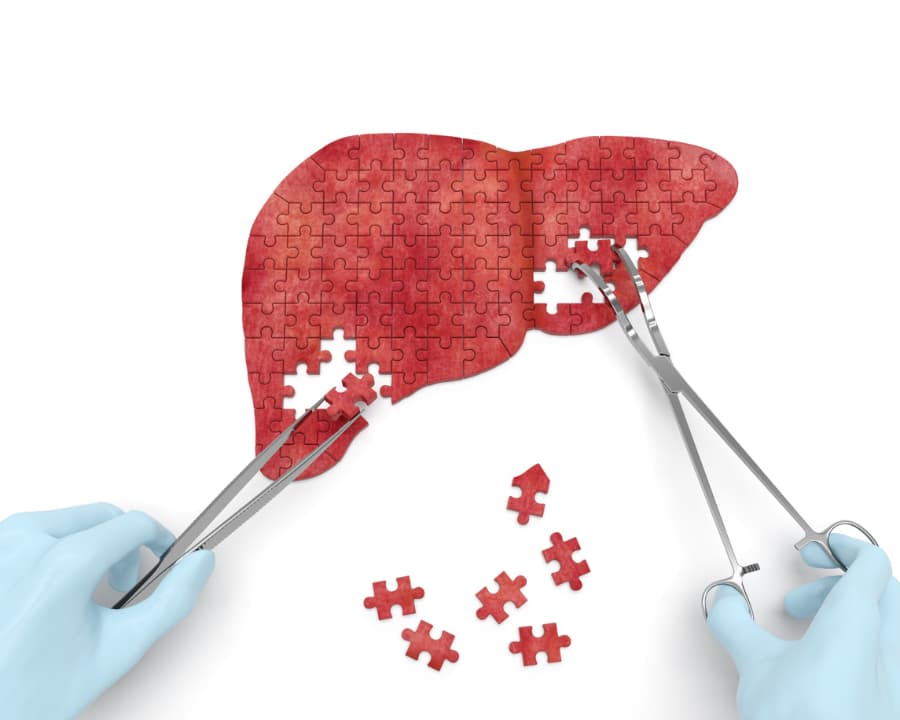Our livers aid in digestion, remove waste from the body, and do much more. Despite the importance of the liver to our overall health, 4.5 million adults in the U.S. have been diagnosed with liver disease, or cirrhosis. Richmond University Medical Center shares five tips to help you keep your liver healthy.
1. Eat Well and Stay Active
Obesity is a leading cause of nonalcoholic fatty liver disease (NAFLD). When undetected, NAFLD can lead to liver failure and even death. Conditions associated with obesity, such as high blood pressure and high cholesterol, can also contribute to NAFLD.
Fortunately, eating a well-balanced diet low in fat and calories is a great way to keep your liver healthy. The best foods for liver health include:
- Whole-grain breads and cereals
- Brown rice
- Healthy fats, including avocado, nuts and seeds, and fatty fish
- Low-fat dairy products
- Fiber-rich fruits and vegetables
- Lean meats
Staying active can also support a healthy diet. Just 30 minutes spent walking, swimming, or playing a sport each day offers significant benefits.
2. Avoid Alcohol
Like NAFLD, alcohol-related liver disease (ARLD) affects the health of the organ. This condition represents a rising public health problem, as nearly 30% of adults over 18 reported binge drinking in the past month when surveyed. Our understanding of portion sizes further complicates risk for ARLD, as many individuals underestimate how much they drink.
If you have been diagnosed with other conditions affecting the liver, such as hepatitis or certain hereditary diseases, avoiding alcohol is essential. For those without added risk for liver disease, limit consumption. Women should consume no more than one 12 oz. beer or 5 oz. glass of wine each day, while men should consume no more than two drinks.
3. Quit Smoking
Smoking harms every part of our bodies, including the liver. The toxins in cigarettes often cause inflammation that increases the risk for liver disease and cancer. Over time, these toxins also increase the production of cytokines, resulting in additional inflammation and greater damage.
Quitting smoking helps prevent further liver damage and added risk from other factors, such as health conditions, obesity, and drinking. Quitting is hard, but a smoking cessation program or therapist can provide the support needed to quit for good.
4. Monitor Use of Over-the-Counter Medications, Supplements, and More
While over-the-counter (OTC) medications and supplements are generally safe, these substances must be used according to directions. One of the most common OTC medications, acetaminophen, can cause liver damage and even failure when taken incorrectly. The dangers increase when drugs like Tylenol are combined with others containing acetaminophen, including many cold and flu remedies.
Similarly, herbal treatments and other supplements can be extremely toxic for the liver, especially when used by those with pre-existing conditions and individuals taking other medications. These include:
- Cascara
- Comfrey
- Ephedra
- Kava
- Aloe vera
- Black cohosh
- Anabolic steroids
- Vitamin A
- Niacin
- Green tea extract
- Weight loss supplements
Be sure to speak with your physician before taking any supplement, vitamin, or other substance.
5. Enjoy Your Coffee
Here is something you can feel good about enjoying: a steaming cup of Joe. Research suggests that drinking coffee each day lowers the risk for cirrhosis by up to 80% and liver cancer up to 40%. Coffee may also provide other health benefits and even help us live longer, healthier lives. Just make sure you don’t overdo it! Too much coffee can cause jitters or impact your sleep.
Is your liver as healthy as it could be? If you have concerns about liver health, schedule a visit with a physician for screenings to assess your wellbeing and develop a plan of action if needed. For more information about treatment at Richmond University Medical Center in Staten Island, New York, contact us today.




